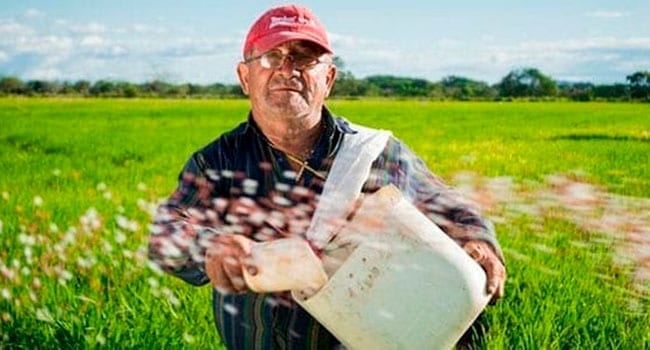 Agriculture’s gross domestic product in Canada could reach $51 billion by 2030, up from $32 billion today, but a report released on Wednesday by RBC says the right investments in people and technology need to be made.
Agriculture’s gross domestic product in Canada could reach $51 billion by 2030, up from $32 billion today, but a report released on Wednesday by RBC says the right investments in people and technology need to be made.
It said Canada must embrace a skills agenda and boost innovation to capitalize on the rising demand for agricultural products around the world.
“Within the coming decade, there will be about nine billion people to feed around the world – over one billion more than today,” said John Stackhouse, senior vice-president at RBC, in a news release. “Our sector is well-positioned to supply the rising demand. Canada is consistently ranked one of the world’s top five exporters, and we anticipate trade agreements with Europe, the United States and the Pacific Rim region will enable our producers to tap into large and fast growing markets.
“Feeding a hungry world presents a historic opportunity for Canada if we can figure out how to better match people, capital and innovation in the agriculture space. We believe Canada can once again be an agriculture superpower, and do it in a way that cuts greenhouse gas emissions, and supports thousands of communities that still help to define our country.”
But the report said the current shortage of Canadian agriculture workers is expected to grow to an estimated 123,000 positions by 2030 and new skills are required to manage the farm of the future, as automation and new and emerging technologies become as essential to farming as water or fertilizer.
“These challenges are exacerbated by a number of structural issues. Canada’s rural population growth has remained flat for the past 30 years, which makes it harder to address labour shortages. Additionally, the bulk of the sector’s capital is held in large, illiquid assets such as farmland and barns. And high operating costs hamper a producer’s ability to invest in new technologies. These and other factors have resulted in uneven adoption and usage of advanced technologies across the country,” said RBC.
The report urges:
- the federal government to convene a national skills strategy for agriculture, together with employers, workers, educators and industry groups, to plan for future labour needs;
- industry groups to coordinate efforts on a bold campaign to attract and retain more youth, women, Indigenous people and new Canadians in agriculture;
- Canada’s work-integrated learning strategy to incorporate agriculture as a key sector, to increase exposure for non-agriculture students across the agri-food industry;
- ensure all major research and development initiatives, such as the Protein Supercluster, are linked to education and skills development;
- the federal government should reduce barriers to high skilled immigration to agriculture, and consider a dedicated service channel under the Global Skills Strategy;
- accelerate the development of industry-wide data governance standards, in accordance with Canada’s Digital Charter, to increase access to the best data and insights on food production;
- fulfil the federal commitment to provide high-speed Internet to the remaining 1.5 million rural and remote households within 10 years, giving them access to online learning and cloud computing;
- learn and apply lessons from countries like the Netherlands, Australia and Israel on approaches to agricultural human capital;
- recognize agriculture’s centrality to Canada’s future health and prosperity.
Mario Toneguzzi is a Troy Media business reporter based in Calgary.
The views, opinions and positions expressed by columnists and contributors are the author’s alone. They do not inherently or expressly reflect the views, opinions and/or positions of our publication.

